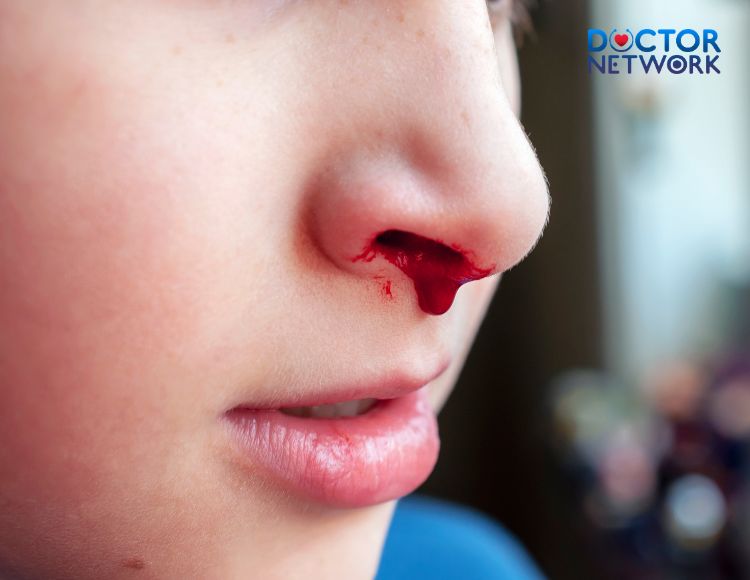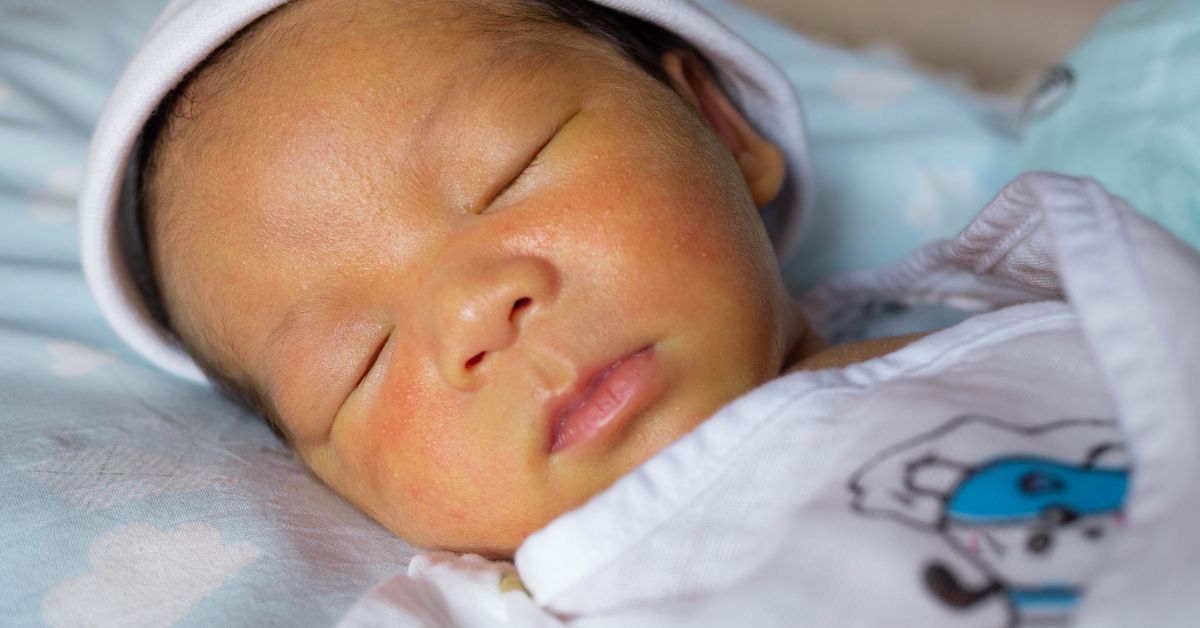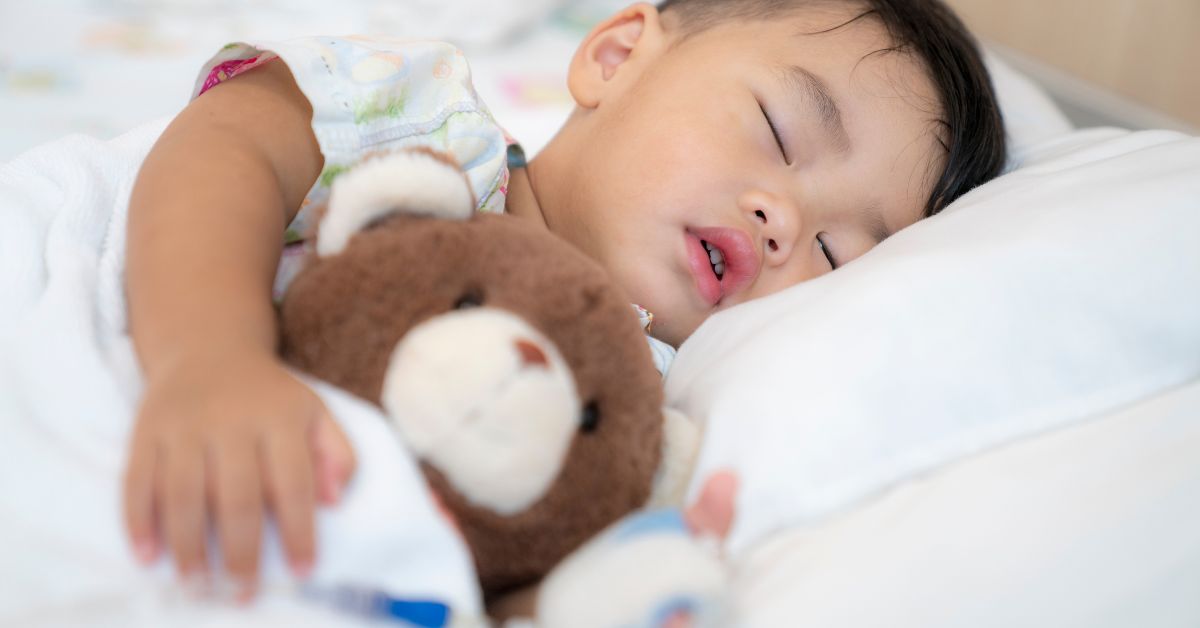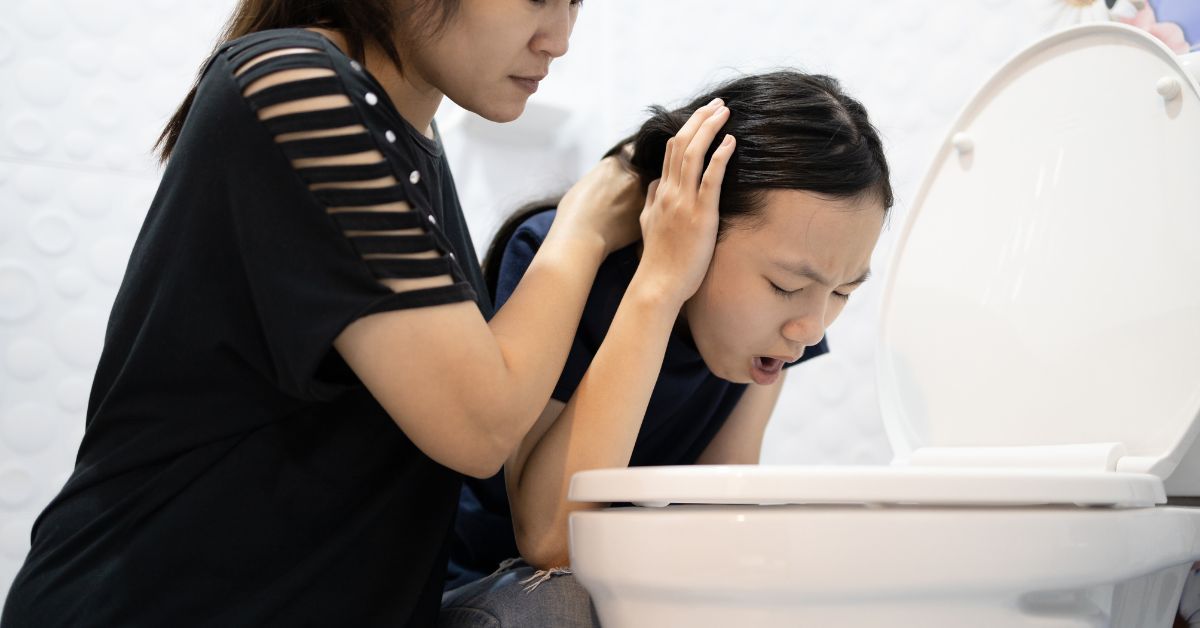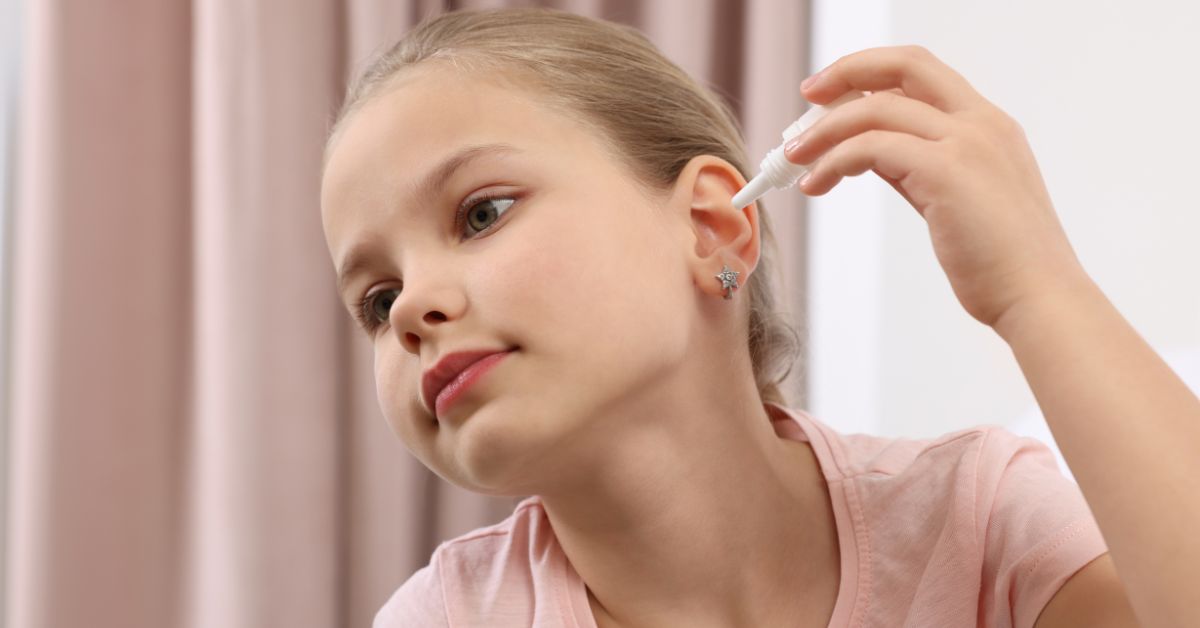Nosebleeds, medically known as epistaxis, are a common occurrence in children that can cause alarm for parents. While often harmless, understanding the prevention, proper management and “causes of nosebleeds in children” is crucial for ensuring your child’s well-being. This comprehensive guide delves into the various factors contributing to pediatric epistaxis, offers expert advice on handling these situations, and provides insights on when to seek medical attention. We’ll explore everything from common triggers to prevention strategies, equipping you with the knowledge to confidently manage your child’s nosebleeds.
Understanding Nosebleeds in Children
Nosebleeds occur when blood vessels in the nasal passages rupture, leading to bleeding from the nose. Children are more susceptible to nosebleeds than adults due to several factors:
- Delicate blood vessels in the nasal septum
- Thinner nasal membranes
- More frequent exposure to irritants
- Higher likelihood of nose picking and injury
Nasal trauma due to impact or fall is also a cause of nosebleeds in children
Common Causes of Nosebleeds in Children
Identifying the root cause of nosebleeds is essential for effective management and prevention. Here are the primary factors contributing to epistaxis in children:
Dry Air and Low Humidity
Arid environments can desiccate nasal membranes, making them more prone to cracking and bleeding. Heating systems in winter often exacerbate this issue, leading to increased instances of nosebleeds.
Trauma and Injury
Physical trauma to the nose, whether from accidents, sports injuries, or rough play, can rupture blood vessels and cause bleeding. Even minor bumps can trigger nosebleeds in children with sensitive nasal passages.
Allergies and Sinus Infections
Chronic inflammation from allergies or sinusitis can irritate nasal membranes, making them more susceptible to bleeding. Frequent nose blowing or rubbing can further aggravate these conditions.
Foreign Objects in the Nose
Children’s curiosity can lead to the insertion of small objects into their nostrils, causing irritation, injury, and subsequent bleeding. Always be vigilant about potential foreign body intrusions.
Picking the Nose
A common habit in children, nose picking can damage the delicate nasal lining, leading to frequent nosebleeds. Educating children about the risks and encouraging gentle nose care is crucial.
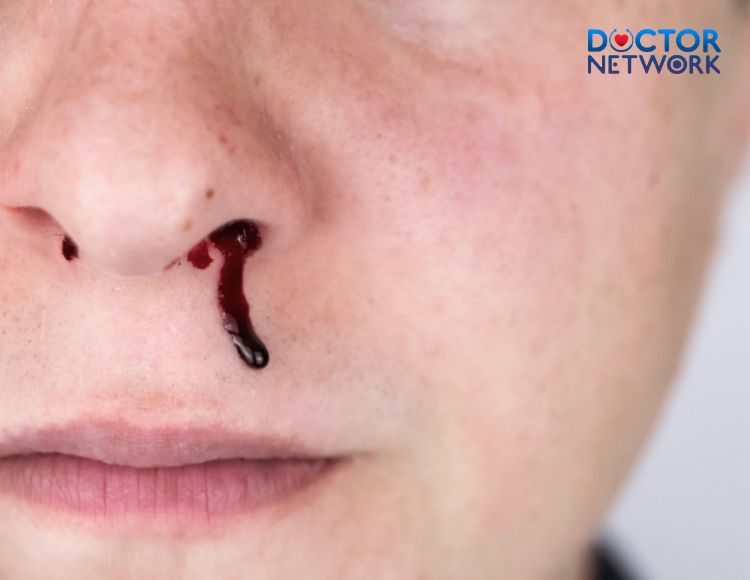
Nose picking can damage the delicate nasal lining, leading to frequent nosebleeds
Certain Medications
Some medications, particularly anticoagulants and nasal sprays, can increase the likelihood of nosebleeds. Always consult with a pediatrician about potential side effects of prescribed medications.
Underlying Medical Conditions
Rare but serious conditions such as blood clotting disorders, leukemia, or vascular malformations can manifest as recurrent nosebleeds. Persistent or severe cases warrant medical evaluation.
Genetic Predisposition
Some children may have a hereditary tendency towards nosebleeds due to factors like thinner blood vessel walls or clotting abnormalities.
Identifying Signs of a Serious Nosebleed
While most nosebleeds are benign, certain symptoms may indicate a more serious condition requiring immediate medical attention:
- Excessive bleeding lasting more than 20 minutes
- Difficulty breathing due to blood flow
- Blood present in vomit or stool
- Fainting, dizziness, or pale skin
- Frequent or recurring nosebleeds
First Aid for Nosebleeds in Children
Knowing how to properly manage a nosebleed can significantly reduce its duration and severity. Follow these expert-recommended steps:
- Stay calm and reassure your child
- Have the child sit upright and lean slightly forward
- Pinch the soft part of the nose firmly for 10-15 minutes
- Apply cold compresses to the bridge of the nose
- Avoid tilting the head back or lying down
When to See a Doctor for a Nosebleed
Consult a healthcare professional if:
- Home remedies are ineffective after 20-30 minutes
- Bleeding is excessive or frequent (more than once a week)
- Nosebleeds are accompanied by other concerning symptoms
- The cause of recurrent nosebleeds is unknown
Preventing Nosebleeds in Children
Proactive measures can significantly reduce the occurrence of nosebleeds:
- Use a humidifier to moisten dry air
- Teach children not to pick their noses
- Ensure proper hydration to keep nasal membranes moist
- Manage allergies and sinusitis with appropriate treatments
- Create safe play environments to minimize nasal injuries
- Review medications with your pediatrician regularly
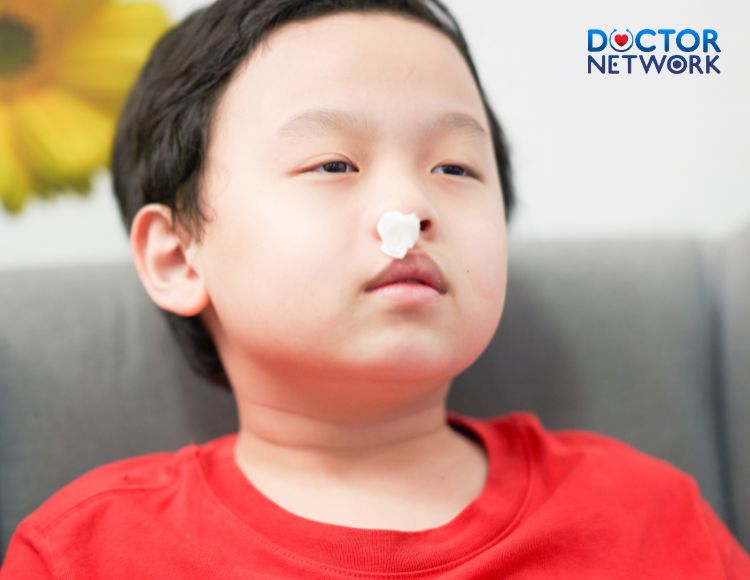
Addressing Concerns and Seeking Professional Advice
Open communication with your pediatrician is crucial for managing recurring nosebleeds. Don’t hesitate to seek multiple opinions if you’re concerned about your child’s condition. Remember, while nosebleeds can be alarming, they’re often manageable with proper care and prevention strategies.
Resources for Parents
For further information and support, consider these valuable resources:
- American Academy of Pediatrics (AAP) website
- Your local pediatric healthcare provider
- Community support groups for parents of children with chronic nosebleeds
By understanding the causes, prevention, and proper management of nosebleeds in children, you can approach these situations with confidence and ensure your child’s nasal health is well-maintained. Remember, most nosebleeds are harmless and easily managed, but don’t hesitate to seek medical advice if you have any concerns about your child’s well-being.
5 frequently asked questions related to the topic “Causes of nosebleeds in children”
How can I tell if my child’s nosebleed is serious?
Answer: While most nosebleeds in children are benign, certain signs may indicate a more serious condition. Watch for these red flags:
- Epistaxis (nosebleed) lasting more than 20 minutes despite proper first aid
- Large volume of blood loss causing dizziness or pale skin
- Nosebleeds occurring more than once a week
- Blood in the child’s stool or vomit
- Difficulty breathing due to blood flow
If you observe any of these symptoms, consult a pediatrician or otolaryngologist (ENT doctor) immediately. They may need to perform a nasal examination or order tests to rule out underlying conditions like Von Willebrand disease or other coagulation disorders.
Can allergies cause nosebleeds in children?
Answer: Yes, allergies can indeed cause nosebleeds in children. Allergic rhinitis, commonly known as hay fever, can lead to inflammation of the nasal passages. This inflammation can cause:
- Itching and irritation of the nasal mucosa
- Frequent rubbing or scratching of the nose
- Increased blood flow to the nasal area
- Dryness and cracking of nasal membranes
All these factors can contribute to epistaxis. Managing allergies through antihistamines, nasal corticosteroids, or immunotherapy as prescribed by an allergist can help reduce the frequency of allergy-related nosebleeds. However, be aware that some nasal sprays, if used incorrectly, can themselves cause nosebleeds.
Are nosebleeds in children a sign of anemia?
Answer: While nosebleeds themselves are not typically a sign of anemia, frequent or severe nosebleeds can potentially lead to anemia if significant blood loss occurs regularly. However, it’s important to note:
- Iron-deficiency anemia is rarely caused by nosebleeds alone in children
- Recurrent nosebleeds might be a symptom of certain blood disorders that can cause anemia
If your child experiences frequent nosebleeds along with symptoms like fatigue, pale skin, or shortness of breath, consult a pediatric hematologist. They may recommend a complete blood count (CBC) to check for anemia and other blood disorders.
Can dry air really cause nosebleeds in children?
Answer: Yes, dry air is a common cause of nosebleeds (epistaxis) in children. The nasal mucosa requires moisture to stay healthy. In dry environments:
- Nasal membranes can become dehydrated and crack
- Small blood vessels near the surface can rupture easily
- The protective mucus layer in the nose becomes less effective
To combat this:
- Use a humidifier in your child’s room, especially during winter months
- Encourage regular water intake to maintain overall hydration
- Apply a thin layer of petroleum jelly inside the nostrils using a cotton swab
- Consider saline nasal sprays to keep nasal passages moist
These measures can significantly reduce the risk of dry air-induced nosebleeds in children.
How can I prevent my child from getting frequent nosebleeds?
Answer: Preventing frequent nosebleeds in children involves addressing common causes and maintaining nasal health. Here are key strategies:
- Humidify the air: Use a humidifier to keep nasal passages moist, especially in dry climates or during winter.
- Discourage nose picking: Teach children about nasal hygiene and the risks of digital trauma to the nose.
- Manage allergies: Work with an allergist to control allergic rhinitis, which can irritate nasal passages.
- Prevent injuries: Ensure children wear protective gear during sports activities to avoid nasal trauma.
- Maintain hydration: Encourage regular water intake to keep nasal membranes well-hydrated.
- Use proper nose-blowing technique: Teach children to blow gently, one nostril at a time.
- Apply moisturizing agents: Use saline nasal sprays or gels to keep the nasal lining moist.
- Review medications: Consult with a pediatrician about any medications that might increase bleeding risk.
By implementing these preventive measures, you can significantly reduce the frequency of epistaxis in children. However, if nosebleeds persist despite these efforts, consult an otolaryngologist to rule out any underlying structural or medical issues.
References:
https://www.healthychildren.org/English/health-issues/conditions/ear-nose-throat/Pages/Chronic-Nosebleeds-What-To-Do.aspx
https://kidshealth.org/en/parents/nose-bleed.html
https://www.nationwidechildrens.org/conditions/nosebleeds
Kiểm Duyệt Nội Dung
More than 10 years of marketing communications experience in the medical and health field.
Successfully deployed marketing communication activities, content development and social networking channels for hospital partners, clinics, doctors and medical professionals across the country.
More than 6 years of experience in organizing and producing leading prestigious medical programs in Vietnam, in collaboration with Ho Chi Minh City Television (HTV). Typical programs include Nhật Ký Blouse Trắng, Bác Sĩ Nói Gì, Alo Bác Sĩ Nghe, Nhật Ký Hạnh Phúc, Vui Khỏe Cùng Con, Bác Sỹ Mẹ, v.v.
Comprehensive cooperation with hundreds of hospitals and clinics, thousands of doctors and medical experts to join hands in building a medical content and service platform on the Doctor Network application.





